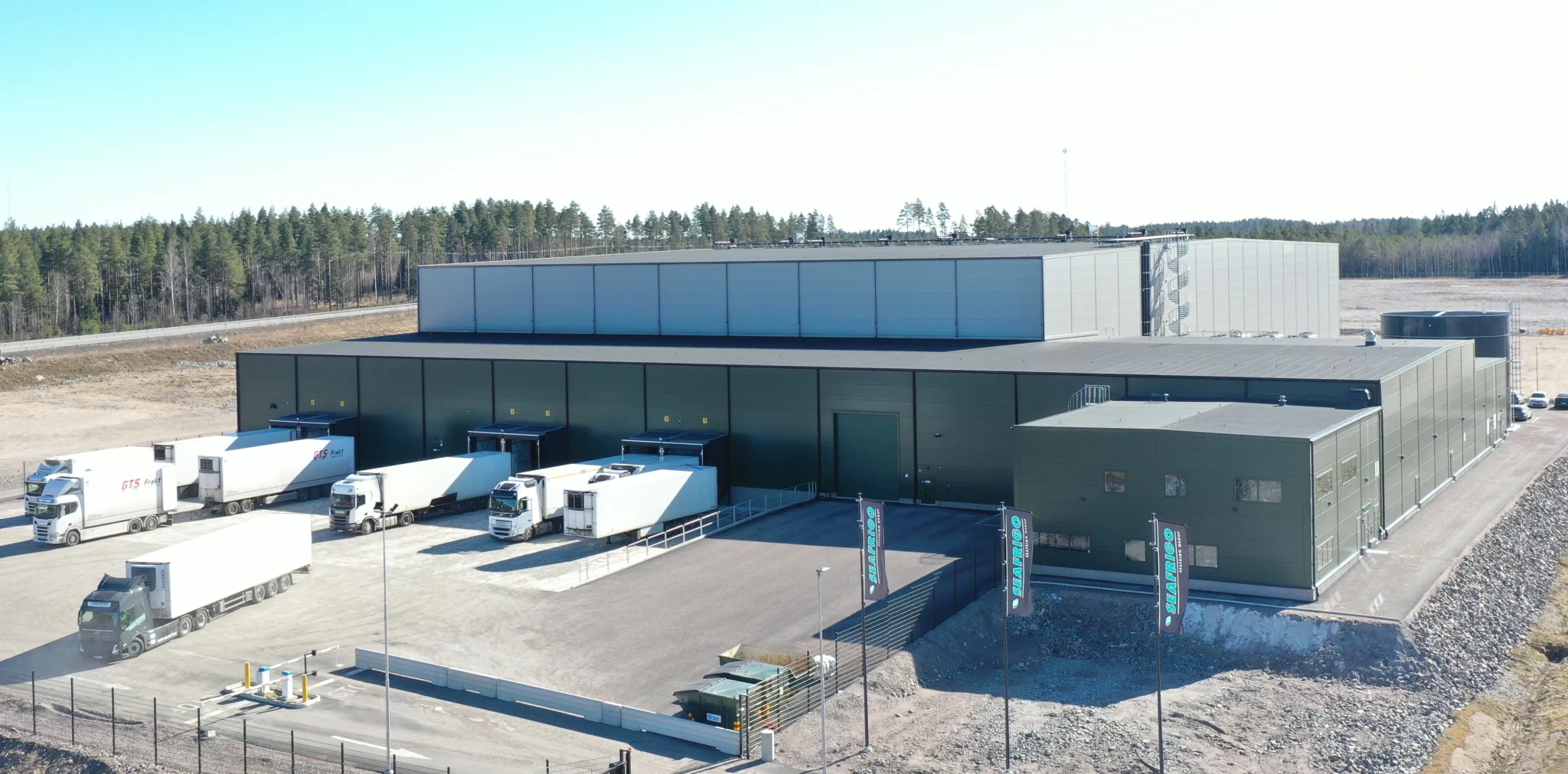Seafrigo, the cold chain logistics expert, specialising in food logistics has officially inaugurated its fifth warehouse in Sweden, marking a significant expansion of its operations in the Nordic region. The new 10,000-square-metre facility, located in Katrineholm, southwest of Stockholm, boasts 30,000 pallet positions and will enable Seafrigo to further enhance a range of its services in the region.
The grand opening was conducted by Seafrigo President and Founder, Eric Barbé, alongside Group CEO, Bruno Plantaz, and Chief Projects Officer, Stéphane Desseigne. They were joined by Seafrigo Nordics Directors Peter Jönsson and Magnus Mohlin, along with customers and local councillors, for a tour of the state-of-the-art facility.
Seafrigo specializes in the storage and handling of foodstuffs across four temperature zones, ranging from frozen to controlled ambient conditions. The company’s Nordic operations are headquartered in Helsingborg, a facility that opened in 2018. Across the Nordics, Seafrigo handles 3,000 specialist pallets daily and conducts 600 tonnes of blast-freezing of meat per week. The new Katrineholm site alone has the capacity to handle 100 tonnes of blast-freezing every week, reinforcing Seafrigo’s commitment to providing premium, specialist logistics solutions.
Built to the highest environmental standards, the Katrineholm facility is Miljöbyggnad Silver certified, in accordance with Sweden’s stringent environmental building certification system. Additionally, Seafrigo operates fully electric trucks in the region, eliminating the use of diesel and further reducing the company’s carbon footprint.
Seafrigo Sweden is a key player in the protein logistics sector, handling beef, pork, and poultry. The company receives daily deliveries directly from slaughterhouses, blast-freezing products from +2°C to -18°C in preparation for export. The principal export markets for Seafrigo’s frozen products include Asia and Africa. The company also provides storage for meat before distribution to Swedish retailers.
With a robust infrastructure in place, Seafrigo ensures that 80% of the Nordic region receives overnight deliveries for products destined for local distribution.
“This new development enables us to further enhance Seafrigo’s extensive service offering across the Nordics and ensures we can better serve our customers’ precise, specialist needs,” said Managing Director Peter Jönsson. “Located close to major retailers’ national distribution centres, we can meet and exceed their requirements while maintaining our commitment to sustainability.”





![[Podcast] Adapting to Industry 4.0: Intralogistics Automation](https://9e1ed6cd27b6b3199380.b-cdn.net/wp-content/uploads/2025/07/TGW-Pod-Square-400.png)

